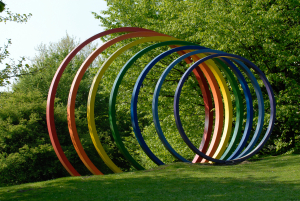

The collaborative research center SFB876 brings together data mining and
embedded systems. On the one hand, embedded systems can be further improved
using machine learning. On the other hand, data mining algorithms can
be realized in hardware, e.g. FPGAs, or run on GPGPUs. The restrictions
of ubiquitous systems in computing power, memory, and energy demand new
algorithms for known learning tasks. These resource bounded learning algorithms
may also be applied on extremely large data bases on servers.
Mehr...

The Collaborative Research Center 876 has investigated machine learning in the interplay of learning theory, algorithms, implementation, and computer architecture. Innovative methods combine high performance with low resource consumption. De Gruyter has now published the results of this new field of research in three comprehensive open access books.
The first volume establishes the foundations of this new field. It goes through all the steps from data collection, their summary and clustering, to the different aspects of resource-aware learning. These aspects include hardware, memory, energy, and communication awareness.
The second volume comprehensively presents machine learning in astroparticle and particle physics. Here, machine learning is necessary not only to process the vast amounts of data and to detect the relevant examples efficiently. It is also a part of the physics knowledge discovery process itself.
The third volume compiles applications in medicine and engineering. Applications of resource-aware machine learning are presented in detail for medicine, industrial production, traffic for smart cities, and communication networks.
All volumes are made for research, but are also excellent textbooks for teaching.
